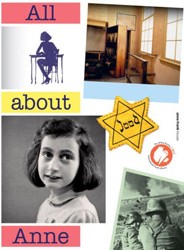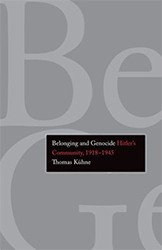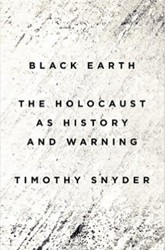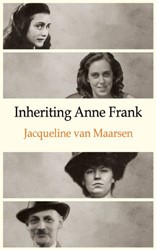How does a post-Genocide society come to terms with the crimes it committed? How do the children and grandchildren of the perpetrators and victims find a path to reconciliation and understanding and break the cycle of hate, mistrust, guilt, and shame to fashion a new and healthier relationship? Rabbi Irving “Yitz” Greenberg once remarked that a telling paradox of the Holocaust is that “the innocent feel guilty and the guilty innocent.” Obviously Germans born after World War II have no responsibility for the Shoah, and children of Holocaust survivors have no reason to feel shame or guilt. Yet they do. Unwanted Legacies is the story of a two-decade unlikely friendship and conversation between Gottfried Wagner, the great-grandson of composer Richard Wagner, a notorious anti-Semite, whose music inspired Adolf Hitler and whose family helped the Nazis rise to power, and Professor Abraham Peck, the child of Holocaust survivors whose extended families were murdered by the Nazis.
Wagner’s narrative is rich and historical. Estranged from his father and grandmother when he decided as a young man to confront and expose their terrible past, he has been denounced by others in the family who wanted to continue the legacy of Bayreuth and cleanse it. He chose eventually to pursue a career as a musicologist, move to Italy, convert to Catholicism — against his deeply Protestant family legacy — and confront and reject his past.
Peck’s story is also deeply personal and powerful and focuses on the American journey of his Holocaust survivor parents as they struggled to make a place for themselves and their son in a society that received them conditionally and halfheartedly. It is also a reflection on the merging of Peck’s personal history with his scholarship, teaching, and other impressive professional accomplishments as he fashioned his career as a Holocaust and genocide scholar-teacher-activist.
At times the conversation that focused on the German-Jewish relationship after the Shoah was difficult and painful, even leading to a temporary hiatus. Through it all it was characterized by honesty and integrity and the mutual commitment to traversing the German-Jewish divide resulting from their shared and unwanted legacies. As readers of this fascinating and rich text, we are edified and encouraged for if Germans and Jews can speak as friends and explore their pasts, then there is hope that the victims of other genocides — the Hutus and Tutsi, the Serbs and Bosnians, the Armenians and Turks — may find a language and mechanism to make reconciliation and healing possible. This is a masterful and sensitively written book that confirms that we can confront our past and embrace it and build new legacies that are life-affirming and not determined by the crimes and experiences of our predecessors.
Related content:
- The Strength of Judaism; The Courage of Social Justice by Eric Greiten
- April 11th: An Eerie Confluence of Dates by Deborah Lipstadt
- Collective Guilt vs. Collective Fear: Shame, Truth, and Reconciliation by Randy Susan Meyers





